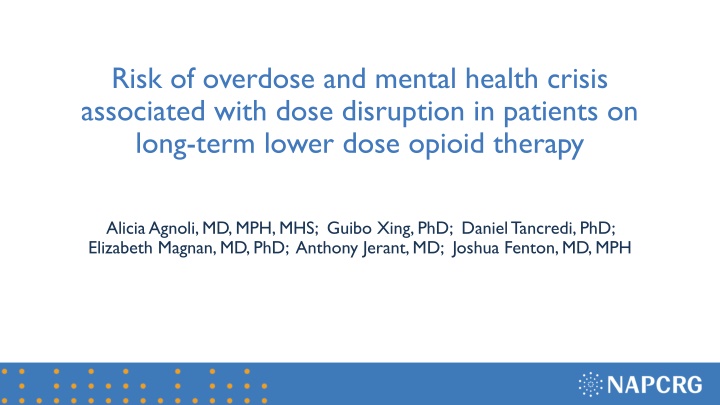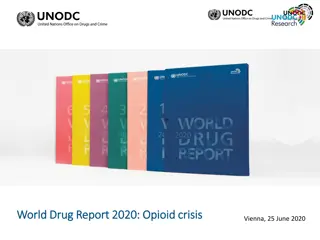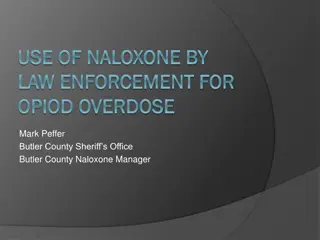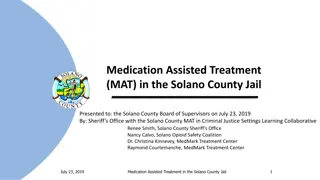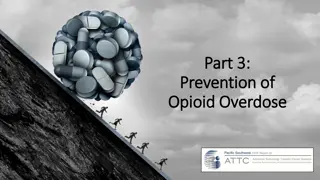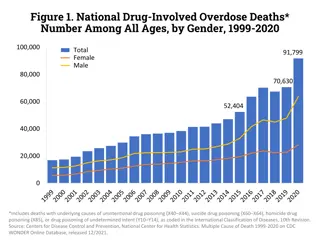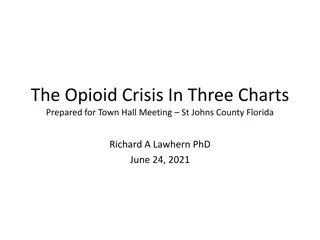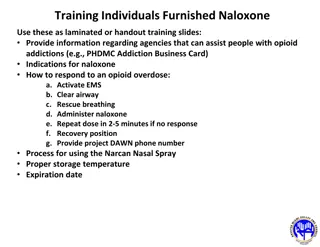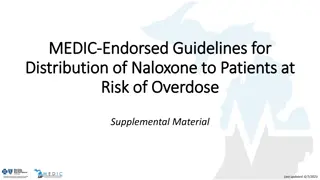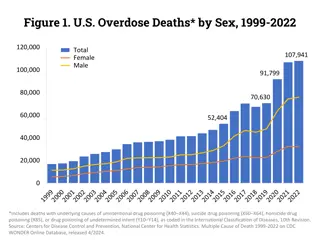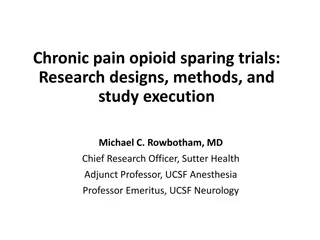Risk of Overdose and Mental Health Crisis in Long-Term Lower Dose Opioid Therapy
Study explores the association between opioid dose disruption and increased risk of overdose and mental health crisis in patients on long-term lower dose opioid therapy. Findings indicate a higher risk of adverse events with dose reduction or discontinuation of opioids.
Download Presentation

Please find below an Image/Link to download the presentation.
The content on the website is provided AS IS for your information and personal use only. It may not be sold, licensed, or shared on other websites without obtaining consent from the author.If you encounter any issues during the download, it is possible that the publisher has removed the file from their server.
You are allowed to download the files provided on this website for personal or commercial use, subject to the condition that they are used lawfully. All files are the property of their respective owners.
The content on the website is provided AS IS for your information and personal use only. It may not be sold, licensed, or shared on other websites without obtaining consent from the author.
E N D
Presentation Transcript
Risk of overdose and mental health crisis associated with dose disruption in patients on long-term lower dose opioid therapy Alicia Agnoli, MD, MPH, MHS; Guibo Xing, PhD; Daniel Tancredi, PhD; Elizabeth Magnan, MD, PhD; Anthony Jerant, MD; Joshua Fenton, MD, MPH
The Research Question Given large pressure to de-prescribe long-term opioid therapy, and recent findings suggesting opioid tapering may be associated with increased risk for drug overdose and psychological distress What is the risk of overdose and mental health crisis associated with opioid dose disruption in patients prescribed long-term lower dose opioid therapy?
Research Design and Method Data source: OptumLabs Data Warehouse, 2008-2019 Study population: Adults taking stable, long-term, lower dose opioid therapy Oral or transcutaneous opioid therapy 10-49 MME/day, <10% monthly fluctuation in dose Observed for up to 12 months after cohort entry Exposure: 50-100% relative reduction of average daily opioid dose during any one of six overlapping 60-day windows within the first 7 months of follow-up. Outcomes: Modeled monthly counts of outcome events using event history analysis with tapering status specified as a time-varying covariate Drug Overdose: Hospitalization or ED visit for overdose, alcohol intoxication, or drug withdrawal during the 12 month follow up Mental Health Crisis: Hospitalization or ED visit for depression, anxiety, or suicide attempt Negative binomial regression to estimate adjusted incidence rate ratios and rate differences by tapering status
Six overlapping 60-day periods for ascertaining dose disruption/discontinuation* Period 5 Period 1 Period 3 Baseline period Stable baseline period (12 months) (6 months) Period 6 Period 2 Period 4 Month 2 Month 3 Month 4 Month 5 Month 6 Month 7 Month 8 Month 9 Month 10 Month 11 Month 12 Month 1 Up to twelve 30-day follow-up periods (person-months) for identifying outcome events *Dose disruption: 50% reduction in average daily dose (compared to baseline)
What the Research Found N= 369,085 patients 9.6% of patients had a 50% dose reduction 5.6% of patients completely discontinued opioids Dose reduction 50% (compared to continuing at baseline dose) associated with increased risk of Overdose: aIRR of 1.28 (95% CI: 1.14-1.44) Mental health crisis: aIRR 1.57 (95% CI: 1.36-1.82) Discontinuing opioids: aIRR 1.25 (95%CI: 1.08-1.45) for overdose, aIRR of 1.79 (1.46-2.20) for mental health crisis.
What this means for Clinical Practice Among patients prescribed stable, long-term lower dose opioid therapy, large relative dose reductions (50% or more) were associated with increased risk of overdose and mental health crisis. These findings suggest greater caution is needed in opioid dose reduction or discontinuation among long-term patients, even among those at lower doses
